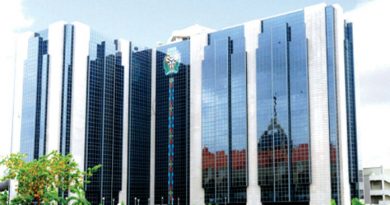Senate, LCCI, NLC pick holes in N5000 transport grant to 40m Nigerians
The senate has raised concern about plans by the federal government to pay a monthly stipend of N5, 000 to 40 million Nigerians as transport expenses after the planned removal of fuel subsidy in 2022.
Recall that the minister of finance, budget and national planning, Mrs. Zainab had, at the launch of the World Bank Nigeria Development Update (NDU) in Abuja on Tuesday that the government targeted 30-40 million indigent Nigerians to benefit from the monthly transport grant to cushion the effect of the fuel subsidy removal.
She said although the move was set for June 2022, subsidy would go before that time in line with the Petroleum Industry Act (PIA).
“The subsidies regime in the (oil) sector remains unsustainable and economically disingenuous.
“Ahead of the target date of mid-2022 for the complete elimination of fuel subsidies, we are working with our partners on measures to cushion potential negative impact of the removal of the subsidies on the most vulnerable at the bottom 40 per cent of the population.
“One of such measures would be to institute a monthly transport subsidy in the form of cash transfer of N5, 000 to between 30 – 40 million deserving Nigerians,” she said.
However, the chairman, senate committee on finance, Mr. Solomon Adeola, faulted the move saying there was no provision for N5, 000 for 40 million indigent Nigerians, in the 2022 budget currently before the national assembly.
Addressing journalists in Abuja yesterday, the senator said the executive would have to bring the proposal to the parliament for approval before the start of its implementation.
He said there was no way the executive would take a unilateral decision on a programme that would gulp N2.4 trillion without getting the approval of the parliament
He also queried the criteria that the executive would use to determine the beneficiaries of the transportation allowance.
“I don’t want to go into details. If there is something like that a document needs to come to the national assembly and how do they want to identify the beneficiaries?
“This is not provided for in the 2022 budget proposal totaling N2.4 trillion. For us, we still believe it is news because this budget we are considering contains subsidy and if we are passing a budget with subsidy in the fiscal document, we can’t speak because that is the document that is currently before us.
“So, this is not provided for in the 2022 budget. We don’t have anywhere in the budget where 40 million Nigerians will collect N5, 000 monthly as transportation allowance totaling N2.4 trillion.
The Nigeria Labour Congress (NLC) also faulted the planned removal of petrol subsidy and described the N5, 000 palliative to vulnerable Nigerians as “comical.”
The congress, in a release entitled ‘Nigerian workers refuse to take the bait,” and signed by its president, Mr. Ayuba Wabba said it was unthinkable that Nigeria is the only nation among the Organisation of Petroleum Exporting Countries (OPEC) that cannot produce its own refined petroleum products and thus adopts the neo-liberal import production model of refined petroleum products.
“The contemplation by government to increase the price of petrol by more than 200 per cent is a perfect recipe for an aggravated pile of hyper-inflation and astronomical increase in the price of goods and services.
“This will open a wide door to unintended social consequences such as degeneration of the current insecurity crises and possibly citizens’ revolt. This is not an outcome that any sane Nigeria wishes for.”
“We wish to reiterate our persuasion that the only benefit of deregulation based on import-driven model is that Nigerian consumers will infinitely continue to pay high prices for refined petroleum products.
“This situation will definitely be compounded by the astronomical devaluation of the naira which currently goes for N560 to US dollars in the parallel market. Thus, any attempt to compare the price of petrol in Nigeria to other countries would be set on a faulty premise as it would be akin to comparing apples to mangoes.”
“We wish to warn that the bait by government to pay 40 million Nigerians N5, 000 as palliative to cushion the effect of astronomical increase in the price of petrol is comical, to say the least.
“The total amount involved in this queer initiative is far more than the money government claims to spend currently on fuel subsidy. Apart from our concerns on the transparency of the disbursement given previous experiences with such schemes, we are wondering if government is not trying to rob Nigerians to pay Nigerians. Why pay me N5000 and then subject me to perpetual suffering?
“Clearly, government thoughts on the so-called removal of fuel subsidy is cloudy and appears to be a “penny wise-pound foolish” gamble. It is clear that the palliative offered by government will not cure the cancer that will befall the mass of our people who suffer the double jeopardy of hyper-inflation while their salaries remain fixed,” Wabba stated.
For her part, the director general of the Lagos Chamber of Commerce and Industry (LCCI), Dr Chinyere Almona said the removal of subsidy was becoming more unavoidable looking at the pressure it placed on government revenue.
She said the chamber had always advocated the need to have a fully deregulated oil and gas sector in Nigeria with cost-reflective pricing for the oil products.
She said it is not economical to spend up to N250 billion monthly on fuel subsidy at a time when the debt to revenue ratio was above 73 per cent.
She said the immediate implication of removing the subsidy would be the increase in transport and logistics which would translate into higher costs for goods and services, rising inflation, increased poverty from diminishing purchasing power, and a likely rise in the unemployment rate.
“However, with more money freed for other purposes, the government should be able to spend more on utilities to cushion the effects of the removal. With cost-reflective pricing, smuggling of the products to neighbouring countries will reduce due to reduced margins,” she added.
She also raised concern about the planned disbursement of N5, 000 to 40 million poor Nigerians.
“On the proposed N5, 000 to be given to some people, we always wonder how the selection is made and from what database or register. What is the guarantee that the money will end up with the right people needing the intervention?
“One of the biggest problems with our social investment programmes is that we do not have a systematic methodology on how beneficiaries are selected,” Almona added.
Similarly, the chief executive officer of Financial Derivatives Company, Mr. Bismarck Rewane, argued that while the removal of the fuel subsidy would lead to lesser consumption due to increasing prices, the government would have extra funds to trigger economic growth.
However, he queried the process and essence of the distribution of the N5,000 transport palliative to 40 million Nigerians, which, according to him, would likely cost about N2.4tn in one year – an amount that is N600 billion short of the N3 trillion for fuel subsidy.
“N5000 times 40 million is about N200 billion a month. It is N2.4tn in one year. This means that the government wants to save N3tn to spend N2.4 trillion. Now, who are the 40 million people? For instance, I buy petrol but I am not among those who will get N5, 000 a month. So, who are those 40 million to get this money? And how will it be disbursed?”
(News Gazette)




